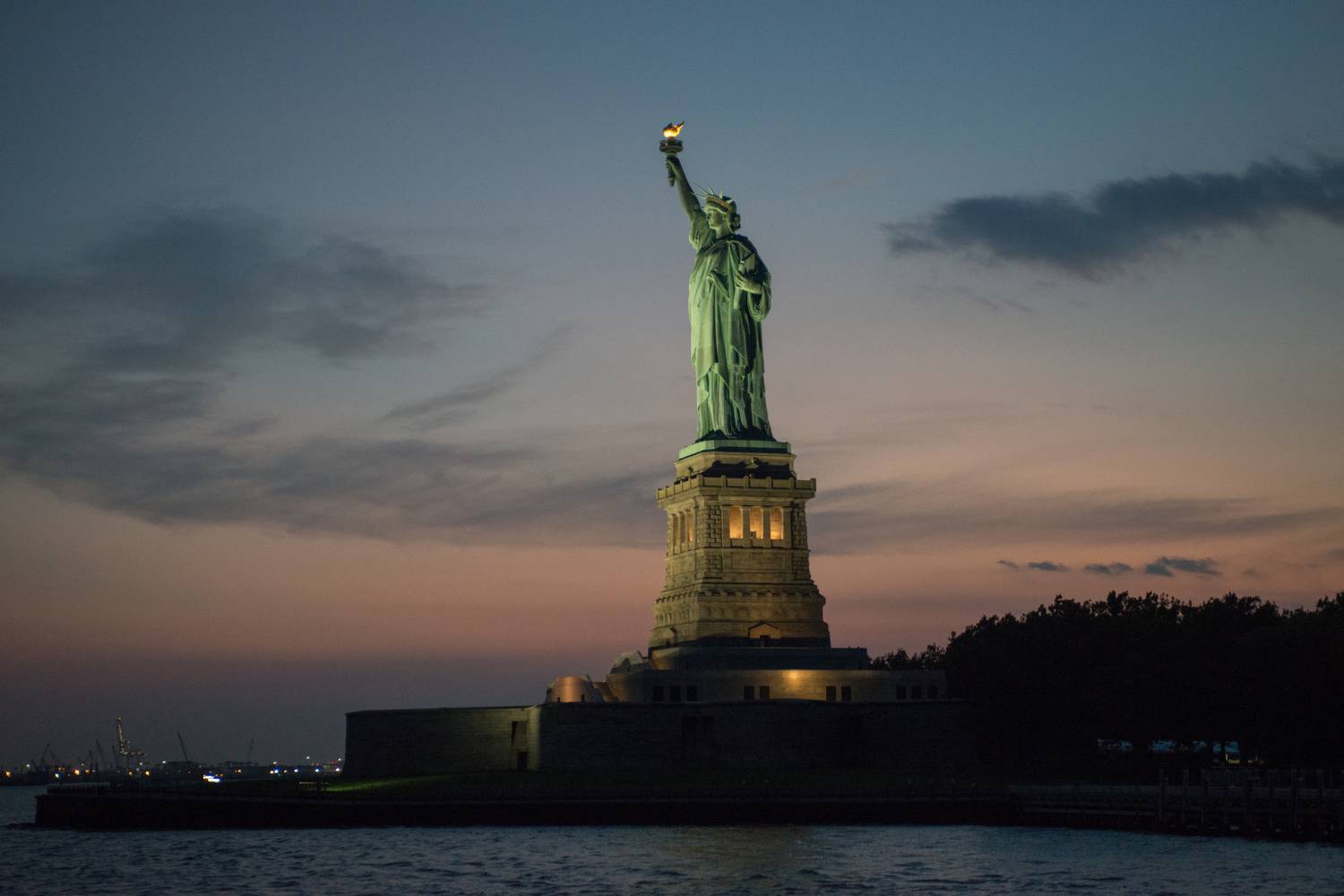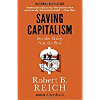
Bad enough that a tyrant is destroying American democracy. Now an oligarch is trying to buy the presidency.
Michael Bloomberg’s net worth is over $60 billion. The yearly return on $60 billion is at least $2 billion – which is what Bloomberg says he’ll pour into buying the highest office in the land.
I’m not saying that great wealth should disqualify you from becoming president. America has had some talented and capable presidents who were enormously wealthy – Franklin D. Roosevelt, Teddy Roosevelt, John F. Kennedy, for example.
The problem lies at the nexus of wealth and power, where those with great wealth use it to gain great power. This is how oligarchy destroys democracy.
So far, Bloomberg spent over $380 million on campaign advertising. That’s more than Hillary Clinton spent on advertising during her entire presidential run. It’s multiples of what all other Democratic candidates have spent, including billionaire Tom Steyer.
Encouraged by the murky outcome from the Iowa caucuses and New Hampshire primaries, Bloomberg has doubled his spending on TV commercials in every market where he is currently advertising and is expanding his campaign’s field staff to more than 2,000.
That’s not the only way he’s using his billions to co-opt the election. He’s been endorsed by House Democrats and Democratic mayors who were the beneficiaries of his fortune during their campaigns. He’s also paying social-media “influencers” with large followings to promote his campaign.
His paid staff is already three times as large as Trump’s, five times Joe Biden’s. He’s using his fortune to woo staffers away from other campaigns.
Meanwhile, the Democratic National Committee is putting Bloomberg onto the debate stage by abandoning the individual-donor threshold that it used for the first eight debates, presumably because Bloomberg – the self-funded billionaire – doesn’t take donations.
To participate in the Feb. 19 debate in Las Vegas, Democratic candidates need to show at least 10 percent support in four national polls. Bloomberg’s wall-to-wall advertising makes that pretty much inevitable. He recently came in third place in a Morning Consult tracking poll, behind just Sanders and Biden. And he’s in the top four in many Super Tuesday states.
Bloomberg has some attractive policy ideas about gun control, the environment, and a more progressive tax.
But he’s also a champion of Wall Street. He fought against the reforms following the near meltdown of the Street in 2008. His personal fortune is every bit as opaque as Trump’s. Through his dozen years as mayor of New York he refused to disclose his federal taxes. Even as a candidate for president, he still hasn’t given a date for their release.
And because he hasn’t taken individual donations, hasn’t appeared on the debate stage, and bases his entire campaign on TV advertising, he isn’t being held accountable for his despicable record on race and criminal justice – the discriminatory stop-and-frisk policy he implemented when he was mayor, or his defense of red-lining.
And, remember, he’s trying to buy the presidency.
The word “oligarchy” comes from the Greek word oligarkhes, meaning “few to rule or command.” It refers to a government of and by a few exceedingly rich people.
The richest 130,000 families now own nearly as much as the bottom 90 percent – 117 million families – combined. The three richest Americans own as much as the bottom half. Michael Bloomberg is the eighth richest.
Big money inevitably engulfs politics, which is why a handful of extremely rich people like Bloomberg have more influence than any comparable group since the robber barons of the early 20th century.
Unlike income or wealth, power is a zero-sum game. The more of it at the top, the less of it anywhere else. And as power and wealth have moved to the top, everyone else has become dis-empowered. Today the great divide is not between left and right. It’s between democracy and oligarchy.
Bloomberg is indubitably part of that oligarchy.
If the only way we can get rid of a sociopathic tyrant named Trump is with an oligarch named Bloomberg, we will be forced to choose the oligarch.
But let’s hope it doesn’t come to that. Oligarchy is better than tyranny. But neither is as good as democracy.
About the Author
 ROBERT B. REICH, Chancellor’s Professor of Public Policy at the University of California at Berkeley, was Secretary of Labor in the Clinton administration. Time Magazine named him one of the ten most effective cabinet secretaries of the last century. He has written thirteen books, including the best sellers “Aftershock" and “The Work of Nations." His latest, "Beyond Outrage," is now out in paperback. He is also a founding editor of the American Prospect magazine and chairman of Common Cause.
ROBERT B. REICH, Chancellor’s Professor of Public Policy at the University of California at Berkeley, was Secretary of Labor in the Clinton administration. Time Magazine named him one of the ten most effective cabinet secretaries of the last century. He has written thirteen books, including the best sellers “Aftershock" and “The Work of Nations." His latest, "Beyond Outrage," is now out in paperback. He is also a founding editor of the American Prospect magazine and chairman of Common Cause.
Books by Robert Reich
Saving Capitalism: For the Many, Not the Few -- by Robert B. Reich
 America was once celebrated for and defined by its large and prosperous middle class. Now, this middle class is shrinking, a new oligarchy is rising, and the country faces its greatest wealth disparity in eighty years. Why is the economic system that made America strong suddenly failing us, and how can it be fixed?
America was once celebrated for and defined by its large and prosperous middle class. Now, this middle class is shrinking, a new oligarchy is rising, and the country faces its greatest wealth disparity in eighty years. Why is the economic system that made America strong suddenly failing us, and how can it be fixed?
Click here for more info or to order this book on Amazon.
Beyond Outrage: What has gone wrong with our economy and our democracy, and how to fix it -- by Robert B. Reich
 In this timely book, Robert B. Reich argues that nothing good happens in Washington unless citizens are energized and organized to make sure Washington acts in the public good. The first step is to see the big picture. Beyond Outrage connects the dots, showing why the increasing share of income and wealth going to the top has hobbled jobs and growth for everyone else, undermining our democracy; caused Americans to become increasingly cynical about public life; and turned many Americans against one another. He also explains why the proposals of the “regressive right” are dead wrong and provides a clear roadmap of what must be done instead. Here’s a plan for action for everyone who cares about the future of America.
In this timely book, Robert B. Reich argues that nothing good happens in Washington unless citizens are energized and organized to make sure Washington acts in the public good. The first step is to see the big picture. Beyond Outrage connects the dots, showing why the increasing share of income and wealth going to the top has hobbled jobs and growth for everyone else, undermining our democracy; caused Americans to become increasingly cynical about public life; and turned many Americans against one another. He also explains why the proposals of the “regressive right” are dead wrong and provides a clear roadmap of what must be done instead. Here’s a plan for action for everyone who cares about the future of America.
Click here for more info or to order this book on Amazon.

Related Books:
On Tyranny: Twenty Lessons from the Twentieth Century
by Timothy Snyder
This book offers lessons from history for preserving and defending democracy, including the importance of institutions, the role of individual citizens, and the dangers of authoritarianism.
Click for more info or to order
Our Time Is Now: Power, Purpose, and the Fight for a Fair America
by Stacey Abrams
The author, a politician and activist, shares her vision for a more inclusive and just democracy and offers practical strategies for political engagement and voter mobilization.
Click for more info or to order
How Democracies Die
by Steven Levitsky and Daniel Ziblatt
This book examines the warning signs and causes of democratic breakdown, drawing on case studies from around the world to offer insights into how to safeguard democracy.
Click for more info or to order
The People, No: A Brief History of Anti-Populism
by Thomas Frank
The author offers a history of populist movements in the United States and critiques the "anti-populist" ideology that he argues has stifled democratic reform and progress.
Click for more info or to order
Democracy in One Book or Less: How It Works, Why It Doesn't, and Why Fixing It Is Easier Than You Think
by David Litt
This book offers an overview of democracy, including its strengths and weaknesses, and proposes reforms to make the system more responsive and accountable.



























